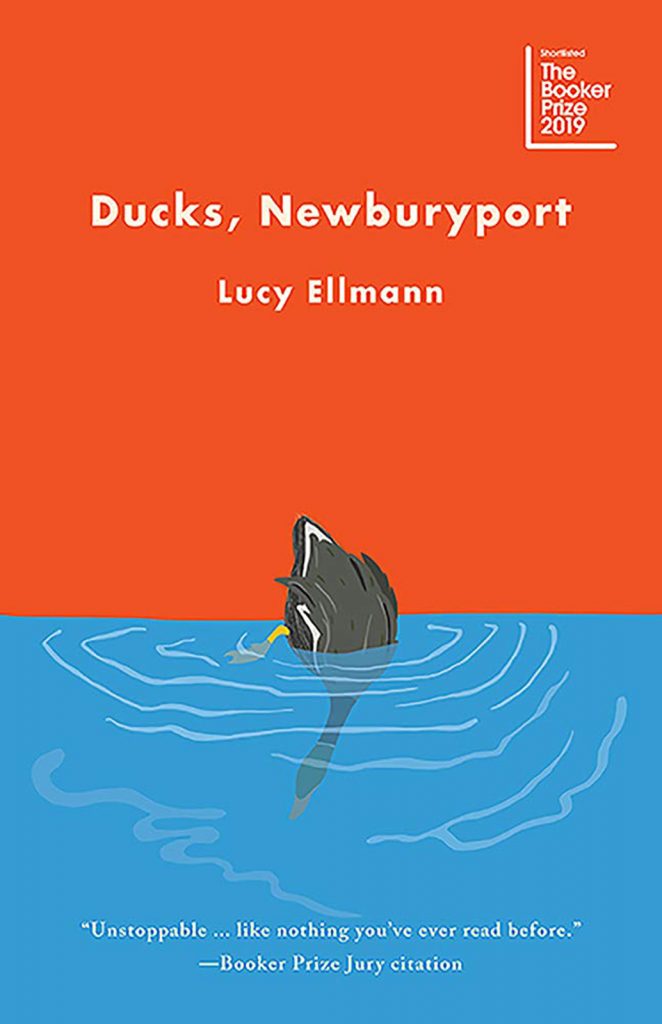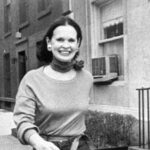BY CHRISTOPHER BORRELLI, CHICAGO TRIBUNE
The most important book of 2019 was available to Americans for free (in fact, they had already paid for it). Its cover was indistinguishable from the starkest of corporate reports, large chunks throughout were redacted, and the prose that was readable carried all the warmth of an Apple licensing agreement. It was a 400-something page epic that somehow played smaller and less satisfying than the year’s other 400-something page bombshell: “The Testaments,” Margaret Atwood’s hit sequel to “The Handmaid’s Tale.”
Still, of everything published this year, it’s hard to think of more compelling lines than these, early in “The Mueller Report”: “The president slumped back in his chair and said ‘Oh my God. This is terrible. This is the end of my Presidency. I’m f—.’” It kind of sucks you in, right? The author himself takes on a role in its meta-plot, and the stakes are so inflated — the fate of a nation — that any writing workshop would squirm at the ambition.
“The Mueller Report,” as literature, was not one of the best books of 2019, yet, of everything I’ve read since January, it holds one of the two passages I remember with any clarity. The other is from Tressie McMillan Cottom’s “Thick: And Other Essays”: “Thick where I should have been thin, more when I should have been less, a high school teacher nicknamed me ‘Ms. Personality,’ and it did not feel like a superlative.”
That first passage is about decline, the second about asserting your place.
If there was commonality among the best books of the year, it could be found between those poles, in the ebb and flow of institutional erosion followed by fresh voices. Memory, and how it can mislead and sustain us, became the subject of the year. Though note: Ironically, there were so many memorable reads that, beyond the 10 best, I included 15 runners-up, all of which, on a different day, at a different hour, had the planets been in retrograde, might have sneaked into a top 10:
Fiction
“Ducks, Newburyport” by Lucy Ellmann (Biblioasis, 1,020 pages, $22.95 ). I won’t lie: To get through this I enacted a plan, to read an hour a day for a month. I finished in two weeks. Nothing about this Booker nominee is as expected: Ellmann, an Evanston native, takes on the state of who we are now, and what we think, regardless of content. It feels shockingly to the minute. For a thousand pages, which unfold as one sentence, we’re privy to the thoughts of an Ohio housewife thinking of Trump, childhood, the cinnamon rolls she has to make for a bake sale, the plot of “Air Force One” — anything rattling around up there. It is work, and who knows if it’ll endure (there’s a swing-for-the-literary-fences Joycean quality hard to ignore), but it’s also an addicting and funny joy.
“Lost Children Archive” by Valeria Luiselli (Knopf, 383 pages, $27.95). The Mexican-born Luiselli, a journalist/novelist/volunteer interpreter for unaccompanied children in immigration court, follows an American couple traveling with their kids to the Southwest border, uncertain of where, intent on documenting children who are crossing. Categorically, it’s a novel; but between those covers lay fiction and essay, road-trip narrative, Cormac McCarthy, Bowie, magic and, as the title promises, archives. Bleak as it sounds, alongside virtuosic writing, Luiselli is playful with structure, one moment inspiring your anger, the next delivering an exhilarating questioning of storytelling itself.
“The Memory Police” by Yoko Ogawa (Pantheon, 274 pages, $25.95). Trouble finding your keys? What if you forgot what keys were? What if birds themselves came next; then roses. What if you were a writer and you began to forget what paper was? Worse, what if there were enforcers, who carried guns and rifled through stuff for evidence of trace memories, ensuring memory loss, phasing out the world you knew? First published in Japan in 1994 and only now, 25 years later, making its American debut, what had been written at the anxious dawn of the digital age emerges now, presciently and chillingly, as part “1984,” part “Fahrenheit 451” and part 2019 — a masterful fantasy about the melancholy of forgetting. You forget birds one day, and possibilities the next.
“Growing Things” by Paul Tremblay (Morrow, 352 pages, $25.99). Is this a collection of horror stories? Or just masterful writing about the inevitable? Stephen King himself has said that Tremblay “scares the hell” out of him, perhaps because Tremblay’s work is rooted and disquieting, always of this planet. He writes with the pop-immediacy of King minus the comforting distance of vampires and ghouls. A vacationing family watches society breakdown; a dog walker leaves unsettling notes; the title story is about sisters trapped by an invasive weed. Tremblay, like Philip K. Dick, or Elmore Leonard, or even King, strikes the latest blow against the usual, know-nothing snobbishness toward genre fiction.
“American Spy” by Lauren Wilkinson (Random House, 294 pages, $27). There are so many great novels by African Americans about living without being seen, or “passing” in plain sight as someone else, it’s strange how rare it is to encounter a spy thriller that isn’t about a white guy. Here is the Cold War story of a black female intelligence officer directed to ensnare the revolutionary leader of Burkina Faso. Wilkinson’s first novel works as a brisk airport thriller, but it’s closer to the personal conflict of Graham Greene than the political machination of John le Carre. Or as the spy’s father says on the day of her FBI graduation: “I’ve been a spy in this country for as long as I can remember.”
Nonfiction
“Go Ahead in the Rain: Notes to A Tribe Called Quest” by Hanif Abdurraqib (University of Texas Press, 216 pages, $16.95). Music books tend to be chunky histories or slight memoirs and never the kind of books about music we really need — the ones that remind us what it feels like to fall in love with a song or band, to fall so totally you’re joined for life, riding an artist’s highs and lows like they’re wayward family. Abdurraqib, a great poet and even better music critic (based in Columbus, Ohio), fills this book with jazz and memories of the great rap magazine The Source, childhood crushes and, of course, a warm history of a legendary group. It’s that rare vivisection, the kind that cuts cleanly and deeply, but leaves the subject more alive than when we found him.
“The Yellow House,” by Sarah M. Broom (Grove, 376 pages, $26). “There was too much detail for my eyes to make sense of,” she writes in this gorgeous, ambitious and rigorously considered memoir (that recently won the National Book Award for nonfiction) about what it means to internalize a home. And not just any — not the tourist landscape of New Orleans, but the working-class blocks of New Orleans East, devastated during Hurricane Katrina, now haunted by generations of splintered families and civic neglect. Broom doesn’t give just her story but a sibling’s, her mother’s, her city’s. As Broom told the Atlantic: “When we boil Katrina down to a weather event, we really miss the point.”
“How to Hide An Empire: A History of the Greater United States” by Daniel Immerwahr (Farrar, Straus & Giroux, 528 pages, $30). As cleverly conceived and surprising as it is, its conception may seem obvious: a history of American expansionism, those territories and possessions that are part of the United States but exist outside of the traditional map and many Americans’ idea of what their country looks like. Meaning, military bases, Puerto Rico, Manila — lands that consistently refute the nationalistic fairy tale of an anti-colonial United States. But Immerwahr, an associate professor of history at Northwestern University, only begins there; the rest is not a condemnation but rather a rare beast: a surprising take on foreign policy.
“Good Talk” by Mira Jacob (One World, 368 pages, $30). A graphic novel in which every character may look black or white, yet nothing is remotely so easy. The format is a pleasant collage of found (and Xeroxed) photos of Jacob and family, and that title is more meaningful than it sounds: Jacob identifies as South Asian and has a mixed-race son, and the conversation that ensues — about being brown in America, from the discomfort of her in-laws’ politics to arranged marriages — is disarmingly blunt, full of tender acts of grace and as effortlessly engaging as a lunch among friends you trust.
“Say Nothing: A True Story of Murder and Memory in Northern Ireland” by Patrick Radden Keefe (Doubleday, 441 pages, $28.95). This 10 best is alphabetical, but I’ve no problem clarifying: Here is my top best, my No. 1. Keefe, a New Yorker staffer known for his dives into minor characters who illustrate worlds, tackles no less than the Troubles, the strife and struggles between governments and tribes that defined Ireland in the 20th century. Starting with famously tangled, contentious material, he structures it ingeniously as true crime, starting with the murder of a mother of 10, then spiraling outward into a detective story that leaves you struck by the youthful resolution, utter waste and political forgetfulness, of its participants.
And 15 almost top-10s, well worth your time
- “The Peanuts Papers: Writers and Cartoonists on Charlie Brown, Snoopy & the Gang, and the Meaning of Life,” edited by Andrew Blauner
- “Exhalation: Stories” by Ted Chiang; “Trust Exercise” by Susan Choi
- “Thick: And Other Essays” by Tressie McMillan Cottom
- “Me” by Elton John
- “The Very Best of Caitlin R. Kiernan” by Caitlin R. Kiernan
- “The Institute” by Stephen King
- “The Topeka School” by Ben Lerner
- “Underland: A Deep Time Journey” by Robert Macfarlane
- “Savage Appetite: Four True Stories of Women, Crime and Obsession” by Rachel Monroe
- “I Like to Watch: Arguing My Way Through the TV Revolution” by Emily Nussbaum
- “Disappearing Earth” by Julia Phillips
- “Audience of One: Donald Trump, Television and the Fracturing of America” by James Poniewozik
- “Trick Mirror: Reflections on Self-Delusion” by Jia Tolentino
- “One Day: The Extraordinary Story of an Ordinary 24 Hours in America” by Gene Weingarten.



